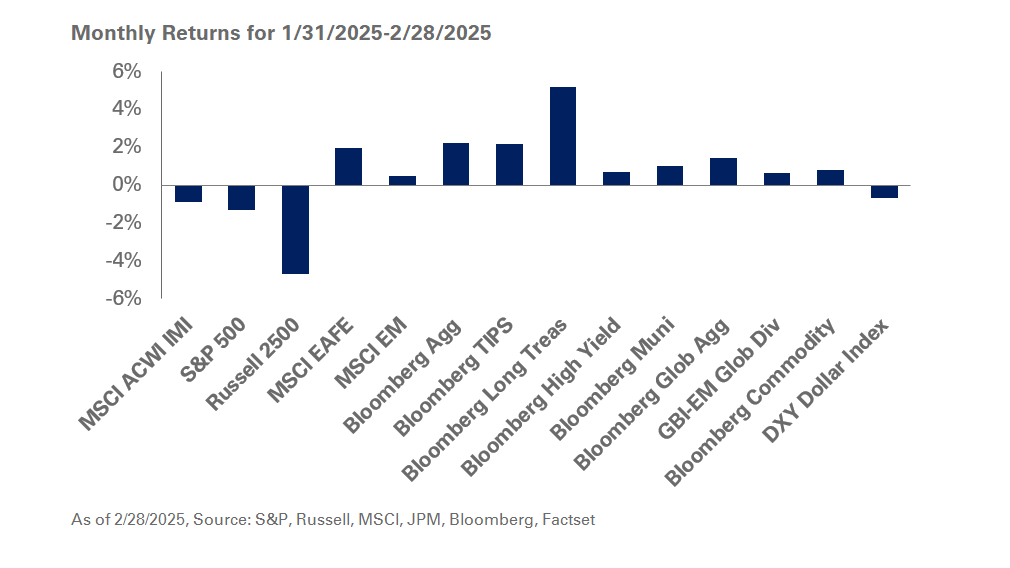All eyes are on Italy as the country heads to the polls on March 4. Rising tensions stemming from a fractured electorate, anemic economic recovery and unprecedented immigration mark these elections—regarded as the most important in Europe this year—as another defining moment for the future of the European Union (EU). Compounding the unpredictability is the high number of undecided voters, fueling the widespread belief that the elections will result in a hung parliament and lead to a coalition government.
As the EU braces for another potential turning point, we maintain our overweight recommendation for international developed equities relative to US stocks. We suggest implementing the exposure with a partial currency hedge as increased political uncertainty is likely to incite currency volatility. As such, we encourage investors to look past political uncertainty and objectively assess valuation or dislocation opportunities offered by the market.
The general election will be Italy’s first national election since 2013, when Mario Monti rose to power on the heels of the European debt crisis. Within this time span, the country’s political landscape has shifted under the direction of three different prime ministers and incumbent parties have struggled to maintain their stronghold.
This political disenchantment, combined with uneven economic growth, has fueled a backlash against globalization, one of NEPC’s key themes for 2018. Given this discontent, all the major contenders in the election have threatened to increase the country’s already worrisome budget deficit, second only to Greece in the Eurozone. Some have gone as far as questioning Italy’s membership in the EU and the single-currency system.
The Primary Players
Democratic Party: The incumbent party led by Matteo Renzi, who resigned as Prime Minister at the end of 2016 after voters rejected his proposals for constitutional reform. The party is strongly pro-Europe.
Five Star Movement: Anti-establishment crusade led by Luigi Di Maio, who previously backed a referendum on leaving the Euro, but has since softened his stance. The party is anti-bureaucracy and has not indicated a preference to cooperate with other parties in a coalition.
Northern League: Right-wing populist party led by Matteo Salvini. The party is strongly anti-immigration and against the single-currency system, and would like to renegotiate terms with the EU.
Forza Italia: Centre-right party led by Silvio Berlusconi, who resigned as Prime Minister in 2011 following a series of scandals. The party is pro-EU, anti-immigration, and hopes to implement a flat-tax system.
Brothers of Italy: A nationalist, conservative party led by Giorgia Meloni. The party is Euro-skeptic, opposes the single currency system, and has taken a strong anti-immigration stance.
The Five Star Movement has consistently led in the polls, polling between 25%-30% on average. Given that a single party would require 40% of the vote to gain a plurality, it is broadly anticipated that the election will result in a hung parliament and a coalition government. While parties are not required to remain loyal to their pre-election alliances, it is generally believed that the Centre-Right alliance (including Forza Italia, Northern League, and Brothers of Italy) will collectively garner the largest support. Despite this advantage, the bloc is still unlikely to get a working majority and conversations will begin with other parties to reach the 40% target – a somewhat inconclusive result that could lead to instability and a potentially less-effective parliament going forward.
Further, though a coalition is widely expected, caution is urged, given the unreliability of polls. An estimated 30%-40% of voters remain undecided or intend to abstain.
At NEPC, we are closely following the outcome and will monitor the implications of the results.



